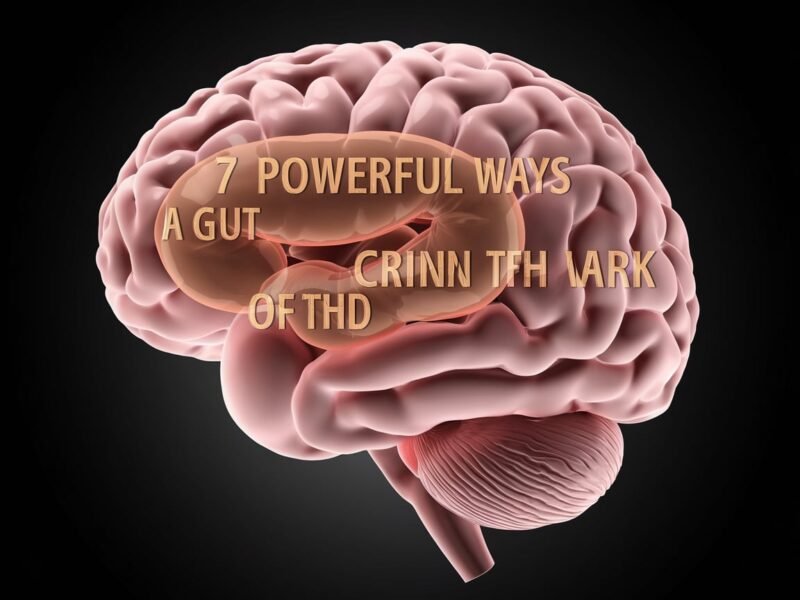Introduction
In the hustle and bustle of modern life, stress has become a prevalent issue affecting millions of people globally. From work-related pressures to personal challenges, stress can manifest in various forms, impacting both mental and physical health. Understanding stress and developing effective management techniques is essential for leading a healthier, more balanced life. This article explores the nature of stress, its effects on the body and mind, and practical strategies for managing it effectively.
Understanding Stress

Stress is the body’s natural response to perceived threats or challenges. When faced with a stressful situation, the body triggers the “fight-or-flight” response, releasing hormones like cortisol and adrenaline. While this response is crucial for survival, chronic stress can lead to a host of health issues, including anxiety, depression, and cardiovascular problems.
Types of Stress
- Acute Stress: This is short-term stress that arises from specific events or situations. It can be triggered by daily pressures, such as deadlines, exams, or arguments. Acute stress is usually manageable and can even be motivating.
- Chronic Stress: Unlike acute stress, chronic stress persists over an extended period. It can result from ongoing issues like financial troubles, unhealthy relationships, or demanding jobs. Chronic stress can severely impact health and well-being if not addressed.
- Eustress: This is a positive form of stress that can be beneficial. It can motivate individuals to perform better, take on new challenges, and achieve their goals. Examples include starting a new job or planning a wedding.
- Distress: This negative form of stress arises from situations perceived as overwhelming or threatening. Distress can lead to feelings of hopelessness and anxiety, affecting overall well-being.
The Physiology of Stress

When faced with stress, the hypothalamus in the brain activates the pituitary gland, which, in turn, signals the adrenal glands to release cortisol and adrenaline. These hormones prepare the body to react to the threat by increasing heart rate, blood pressure, and energy levels. While this response is beneficial in the short term, prolonged exposure to stress hormones can lead to various health issues, including:
- Mental Health Disorders: Chronic stress is closely linked to anxiety disorders, depression, and other mental health issues. The persistent state of alertness can lead to burnout and emotional exhaustion.
- Cardiovascular Problems: Stress can increase heart rate and blood pressure, contributing to heart disease and stroke. Individuals with high stress levels are at a greater risk of developing cardiovascular conditions.
- Digestive Issues: Stress can affect the digestive system, leading to conditions such as irritable bowel syndrome (IBS), gastritis, and acid reflux.
- Weakened Immune System: Prolonged stress can suppress the immune system, making individuals more susceptible to infections and illnesses.
- Sleep Disturbances: Stress often disrupts sleep patterns, leading to insomnia or poor-quality sleep, which can further exacerbate stress levels.
Recognizing Stress
Recognizing the signs and symptoms of stress is the first step toward effective management. Common signs of stress include:
- Emotional Symptoms: Irritability, anxiety, depression, mood swings, and feelings of overwhelm.
- Physical Symptoms: Headaches, muscle tension, fatigue, digestive issues, and changes in appetite.
- Behavioral Symptoms: Changes in sleep patterns, withdrawal from social activities, increased use of substances, and decreased productivity.
Effective Stress Management Techniques

Managing stress requires a multifaceted approach. Here are several effective techniques that individuals can incorporate into their daily lives to reduce stress and enhance well-being.
1. Mindfulness and Meditation
Mindfulness involves focusing on the present moment without judgment. It encourages individuals to observe their thoughts and feelings without becoming overwhelmed by them. Meditation is a practice that cultivates mindfulness, helping to quiet the mind and promote relaxation.
How to Practice Mindfulness and Meditation:
- Set Aside Time: Dedicate 10-15 minutes daily to mindfulness or meditation practice.
- Find a Quiet Space: Choose a calm environment where you won’t be disturbed.
- Focus on Your Breath: Close your eyes and take deep breaths. Focus on your inhalations and exhalations, allowing distractions to fade away.
- Guided Meditations: Consider using apps or online resources for guided meditation sessions to help you get started.
Benefits:
- Reduces anxiety and promotes emotional stability.
- Enhances focus and concentration.
- Improves overall mental clarity and well-being.
2. Regular Exercise

Physical activity is one of the most effective ways to manage stress. Exercise releases endorphins, which are natural mood lifters. It also improves physical health, enhances sleep quality, and promotes overall well-being.
How to Incorporate Exercise:
- Find Activities You Enjoy: Choose exercises that you find fun and engaging, such as dancing, swimming, cycling, or yoga.
- Set Realistic Goals: Aim for at least 150 minutes of moderate aerobic activity each week, or 75 minutes of vigorous activity, as recommended by health guidelines.
- Make it Social: Exercise with friends or join group classes to make it more enjoyable and motivating.
Benefits:
- Reduces symptoms of anxiety and depression.
- Increases energy levels and boosts confidence.
- Promotes better sleep and relaxation.
3. Healthy Eating
A well-balanced diet plays a crucial role in managing stress. Nutrient-rich foods can positively influence mood and energy levels, while poor dietary choices can exacerbate stress.
Tips for Healthy Eating:
- Eat a Balanced Diet: Incorporate fruits, vegetables, whole grains, lean proteins, and healthy fats into your meals.
- Limit Caffeine and Sugar: Excessive caffeine and sugar can lead to energy crashes and increased anxiety. Opt for herbal teas and natural sweeteners.
- Stay Hydrated: Drink plenty of water throughout the day to maintain hydration, which is essential for optimal brain function.
Benefits:
- Provides the body with essential nutrients to combat stress.
- Stabilizes blood sugar levels and energy.
- Enhances overall mood and mental clarity.
4. Sufficient Sleep
Quality sleep is essential for effective stress management. Lack of sleep can increase stress levels, impair cognitive function, and negatively affect overall health.
Tips for Better Sleep:
- Establish a Sleep Routine: Go to bed and wake up at the same time each day to regulate your internal clock.
- Create a Relaxing Environment: Keep your bedroom dark, quiet, and cool. Consider using earplugs or eye masks if necessary.
- Limit Screen Time: Avoid electronic devices at least an hour before bedtime to reduce exposure to blue light, which can interfere with sleep.
Benefits:
- Enhances cognitive function and decision-making abilities.
- Reduces irritability and mood swings.
- Boosts the immune system and overall health.
5. Social Support
Building and maintaining strong social connections is vital for stress management. Talking to friends or family about your feelings can provide relief and support.
How to Foster Social Connections:

- Reach Out: Don’t hesitate to call or meet friends and family. Share your thoughts and feelings with those you trust.
- Join Support Groups: Consider joining local or online support groups to connect with others facing similar challenges.
- Participate in Community Activities: Engage in local events or volunteer opportunities to expand your social network.
Benefits:
- Provides emotional support and reduces feelings of isolation.
- Encourages positive interactions and strengthens relationships.
- Offers different perspectives and coping strategies.
6. Time Management
Poor time management can lead to feelings of overwhelm and stress. By organizing tasks effectively, individuals can reduce anxiety and increase productivity.
Tips for Effective Time Management:
- Prioritize Tasks: Create a to-do list and prioritize tasks based on urgency and importance. Focus on completing high-priority tasks first.
- Set Realistic Goals: Break larger tasks into smaller, manageable steps, and set achievable deadlines.
- Limit Multitasking: Focus on one task at a time to improve efficiency and reduce errors.
Benefits:
- Reduces feelings of overwhelm and anxiety.
- Increases productivity and efficiency.
- Provides a sense of accomplishment.
7. Relaxation Techniques

Incorporating relaxation techniques into daily routines can help alleviate stress. These techniques promote relaxation and create a sense of calm.
Relaxation Techniques to Try:
- Deep Breathing: Practice deep breathing exercises by inhaling deeply through your nose and exhaling slowly through your mouth. Repeat several times to calm your mind.
- Progressive Muscle Relaxation: Tense and relax each muscle group in your body, starting from your toes and working your way up. This technique helps release physical tension.
- Aromatherapy: Use essential oils like lavender, chamomile, or eucalyptus to create a calming environment. Diffusers or scented candles can enhance relaxation.
Benefits:
- Promotes a sense of calm and relaxation.
- Reduces physical tension and anxiety.
- Enhances overall well-being and mental clarity.
8. Seeking Professional Help
Sometimes, managing stress requires professional intervention. If stress becomes overwhelming or leads to severe anxiety or depression, seeking help from a mental health professional can be beneficial.
When to Seek Help:
- Persistent feelings of sadness or hopelessness.
- Difficulty coping with daily responsibilities.
- Experiencing panic attacks or severe anxiety.
Benefits of Professional Support:
- Provides personalized strategies for managing stress.
- Offers a safe space to express feelings and concerns.
- Helps identify underlying issues contributing to stress.
Conclusion
Stress is an unavoidable part of life, but it doesn’t have to control us. By understanding the nature of stress and implementing effective management techniques, individuals can enhance their well-being and lead healthier, more fulfilling lives. From mindfulness and exercise to time management and social support, a variety of strategies are available to help navigate the challenges of modern living. Remember that everyone experiences stress differently, and it’s essential to find the techniques that work best for you. Taking proactive steps to manage stress will not only improve your mental health but also contribute to your overall quality of life.



